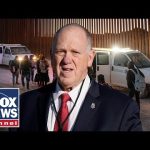In Dearborn, Michigan, a heated city council meeting has ignited national attention after a Christian minister was berated by Mayor Abdullah Hammoud for opposing the city’s decision to honor a pro-Palestinian activist with a street sign. The activist in question has a record of glorifying violent resistance against Israel, including praising “the blood of martyrs” and supporting knife attacks. When the minister raised concerns about the wisdom of venerating someone with such a history, the mayor responded not with reasoned debate, but by suggesting the minister should “just not come to Dearborn anymore.”
This exchange has alarmed many, not just because the city decided to bestow an honor on someone tied to organizations like Hamas and Hezbollah, but also because of what appears to be a blatant attempt to silence opposition. When a mayor tells an American citizen that they are unwelcome in their own city due to their religious concerns and moral objections, the issue is no longer just about a street sign. It becomes about fundamental freedoms — free speech, religious liberty, and equal treatment under the law.
For years, Dearborn has been a flashpoint in debates about assimilation, tolerance, and cultural clashes in America. The city has one of the largest Muslim populations in the country, and while many residents are hardworking and patriotic, radical sympathies have clearly found a place in local politics. Elevating individuals who celebrate terror is not a gesture of diversity; it is a tacit endorsement of ideology that runs counter to American values of peace and liberty. When leaders choose to normalize that symbolism, they betray the very principles they’re sworn to uphold.
The Christian minister’s calm response — simply offering a “God bless you” to the mayor’s angry dismissal — stands in sharp contrast to the hostility he received. His grace under fire, met by the mayor’s intolerance, reveals a troubling imbalance: the side calling for peace is silenced, while the side excusing violence is celebrated. This raises serious questions about whom elected officials in Dearborn truly represent. Are they guardians of the entire community, or only loyal to the loudest faction?
At its core, this controversy is about whether America will tolerate the creeping normalization of extremism in public life. Honoring figures linked with ideologies that fuel terrorism should never be acceptable. Yet in Dearborn, dissenters are told to pack up and leave. That sentiment reflects a dangerous trajectory, one where opposing radicalism is framed as the offense, while excusing it becomes mainstream. Americans everywhere should take note: if free citizens can be told by a mayor to “get out” for voicing moral concerns, then the constitutional fabric of our nation is under strain. Dearborn’s citizens must decide whether they want leaders who defend America’s values or those who abandon them for the sake of appeasing radical sympathizers.




